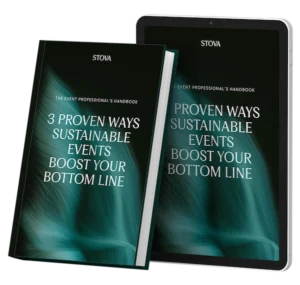Why We as Event Professionals Need Failure to Succeed
January 28, 2020
In this crazy industry that I love, failure is inevitable. Fires will break out; blizzards will close roads and delay your keynote speakers; AC units will fail, and caterers will serve overripe avocado toast. It’s going to happen. When it does, it’s best to keep in mind this scientifically proven fact: A certain level of failure helps us learn faster and make smarter decisions next time around.
“When we learn something new, like a language or musical instrument, we often seek challenges at the edge of our competence — not so hard that we are discouraged, but not so easy that we get bored,” notes this article in Nature Communications.
The article goes into incredible depth about learning methodology in animals, humans and even artificial intelligence, and it’s a fascinating read.
According to the researchers, “ … the optimal error rate for training is around 15.87% or, conversely, that the optimal training accuracy is about 85%.”
In plain English, if we want to improve, at anything, we should welcome a failure rate of around 15%.
“If you’re doing something and you are 100% accurate, you’re not going to be taking as much from that as a situation where you are struggling a little bit,” said lead author of the study Robert Wilson in an interview on Today. “That’s the point at which you’re actually learning the most — struggling a little bit, but not too much.”
In the event world, it’s not often an event becomes a complete disaster (Frye Festival was one obvious exception, but that was gross incompetence and criminal fraud). Rather, event planners generally are pretty great at accounting for almost all contingencies.
Erika Turan of Rasor Marketing Communications shared an article on LinkedIn that drives this point home. She relates three specific examples of special event fails, and what they taught her.
For example, a hospital was planning a special event that includes a large balloon release to celebrate Health Awareness Week. They had accounted for delivery of the balloons (they couldn’t bring them through the hospital corridors to reach the courtyard where they’d be launched). They even coordinated with the hospital helicopter team and arranged for it to be flown off-site in case it needed to fly during the launch.
“The day of the event was cold and grey, and a sparse crowd gathered in the chill for this little ceremony,” Erika writes. “Someone said a few words, and the balloons were released … only to find themselves stuck to the side of the hospital, sucked in by the air intake system. Hundreds of balloons, vibrating maniacally against the vents.”
Was it a fail? You could call it that. It was a powerful learning moment for Erika, who swore off balloon launches in favor of more environmentally friendly and predictable commemorations.
The challenge for most of us is we are psychologically averse to failure, Anna Powers explains in Forbes. She cites the work of Nobel Prize winners Daniel Kahneman and Amos Tversky who found “the effect of loss is twice as great as the gain from a win.
“This is an astounding conclusion indicates the great negative impact a loss has on us as individuals, which is much greater than the impact of a win,” she continues. “Thus, it explains why we as humans would go at lengths to avoid a loss or a failure.”
Yet we all know those icons of modern society who embrace failure as part of their growth. Elon Musk, Jeff Bezos and Jack Ma all have spoken publicly about this.
“Failure comes part and parcel with invention. It’s not optional. We understand that and believe in failing early and iterating until we get it right,” Bezos once wrote in a letter to his shareholders.
“Instead of seeing as something detrimental to success, we have to see it as a tool for success, a tool that helps us refine our path and allows us to learn what works and what does not,” Powers continues. “In such a way, we can see it as a normal part of the innovation of our own lives, not as something detrimental to life.”
In my career, I’ve lived through failure, and come out the other side smarter, stronger and more determined. We plan for success, we work hard for it, we aim for the rave event every time knowing that we’ll learn something in the process.
I see evidence of this mindset all around me, as event planners embrace new technology and integrate apps into their events. Sometimes you swing and hit it out of the park (like MeetingPlay’s gamification redemption wall). Sometimes you miss (like the time the White House served fast food to the visiting Clemson Tigers football after they won the National Championship. There wasn’t anything wrong with the food itself; it just didn’t represent the White House brand, so there was a huge disconnect with what we expect from the brand, and what we saw.)
The point is, we are all learning. Ideally, we’ll miss about 15% of the time, giving us that edge to keep going, keep striving and keep getting smarter.
Whether your event is virtual, hybrid, or in-person, enhance your attendee’s journey with an event ecosystem built for your audience. Ready to walk through Stova's event technology solutions? Schedule some time with us today.

